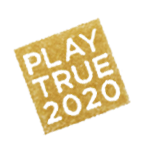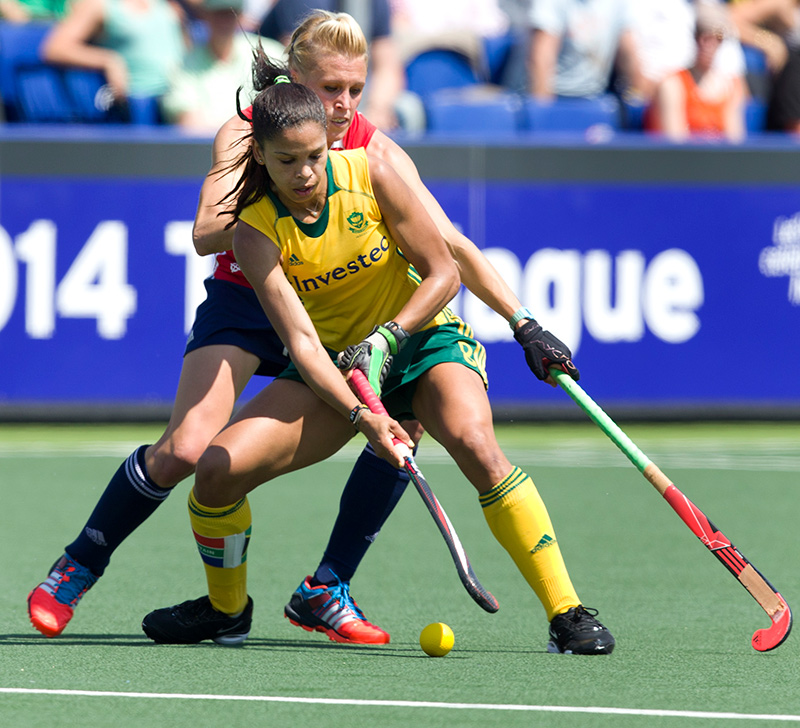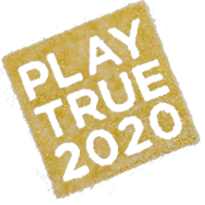





You must find fun and joy in something if you’re going to do it with dedication, because the passion that enables it arises from the spirit of enjoyment. This isn’t the case just for sport. You can’t apply yourself to any one thing or keep it up if you find that it is just painful or difficult. If that’s all you feel, then you need to rethink what you are doing.
When I was a child, apartheid came to an end in South Africa, where I grew up, and I lived through a period of great transformation. The abolition of apartheid was a wonderful political change that was praised around the world. This huge development also had a big impact on sport. It meant an end of segregation in sport as well. Whites and non-whites, who had not interacted in the past, were suddenly to play in the same league, on the same field and in the same team. During the process of desegregation, new rules—such as those requiring a certain number of non-whites on a team—were created in various sports. Such changes did create some confusion among people. However, the end of apartheid undoubtedly set the whole country off into a new age and a bright future.
I started playing hockey during such huge reforms of our society. I wanted people to know that I’d earned my spot as a regular player on the team through my talent—not just to fill a racial quota. So, I dedicated myself to training hard. Although I did want people to recognise my abilities, I don’t think I would have been able to be so passionate about hockey and keep up the sport if I hadn’t felt joy in playing and training as well.


© Koen Suyk

I started playing hockey because of my mother, who was a hockey player and a teacher. She was an exceptional player and played into her very late thirties. Unfortunately, the country was still practicing apartheid when she was at her peak as an athlete, so she wasn’t allowed to represent South Africa and compete on the international stage. Even so, my mother’s last season as a player coincided with my debut in the domestic league. Having had that opportunity to play together for one season is now a memory that we both hold dear.
Four years later, when I was 18, I was selected to play on the South African national team for the first time and made my international debut. I experienced my first Olympic Games at Athens 2004. My mother was a member of the management team, so she too, got to be in Athens for the Olympics.
My mother taught me what it meant to be a true team player - that self-sacrifice was needed to achieve a goal. She also taught me the importance of objective self-analysis: the need to step back, examine oneself and look for a solution if you find yourself stuck. Many of the things that she taught me could be applied off the field in my daily life as well, not just to my life as a hockey player. They still have a positive impact on my life today. My mother is a role model for me like no other. I aspire to be like her, not just as a hockey player but also as a woman and the mother of a child.

I retired as a player in 2015 when I was 32. In the final years of my career, I was playing in the Dutch professional league as well as on the South African national team. So, I was spending half the year in the Netherlands, and the other half in South Africa. But, I’ve been living in the Netherlands throughout the year since 2013, when I married a Dutch man. After retiring in 2015, I have been a manager of the pro team that I used to play for. I decided to retire from that as well at the end of this season, because I found it difficult to balance my time between work and my daughter, who is one and a half years old. I’ll stay on as co-chair of the International Hockey Federation (FIH) Athletes’ Committee, because I want to deliver athletes’ voices to the FIH and want to contribute to the realisation of an athlete-centred sport.
I believe that the elimination of doping and corruption is a essential part for an athlete centred. Ensuring that games and competitions always take place under fair conditions is not an ideal. It is the legitimate right of all clean athletes and their supporters. Athletes and sport federations must work more closely to create that kind of environment as well as to enhance the credibility of sport. Specifically speaking, this points to anti-doping as well as education from a young age. It’s very important that athletes are provided with correct information—shown clearly what is right, what is wrong and what doping is. Athletes themselves must also raise their voices for the achievement of a clean sport. I feel I have a huge responsibility to fulfil as co-chair of the FIH Athletes’ Committee in this sense as well.


During the past 23 years, the people of the Republic of South Africa—my homeland—have been learning to appreciate the greatness of transcending racial and cultural barriers and uniting as one. But this is something relatively new when you consider the long history that preceded it. Even if the nation is transformed and the times change, it will take a long time for the old way of thinking to be completely erased from people’s minds.
One example is the use of the adjective “non-white” when praising my achievement of having played on the South African national team for 14 years. My hope is that the adjective will vanish on its own from people’s minds. I think that sport can play a big role in that.
Women’s participation in society is one of the hottest issue around the world. It is an issue that I look forward to seeing solved. This is something that I felt through my participation in the International Olympic Committee’s Athletes’ Forum as well as by working with various people at the FIH. In recent years, women’s participation in society is being raised as a social issue in various nations and regions. So, I do believe that progress is being made. However, it is still an ongoing issue. The same situation is happened in sport unfortunately. There is a huge difference in the way men and women are treated, not only as athletes but in sports management as well. There are, indeed, physical differences between men and women. So, in that sense, they are not necessarily equal. However, they are equal as human beings in respect to similarly expending time and effort to undertake something, exerting their abilities to the utmost and making self-sacrifices. There may be things that only men can do, but then, there are also things that can only be done by women. The hardships experienced by women should be understood in a like manner, with the same respect given and the same trust granted. At present, I deliver messages and participate in campaigns related to women’s participation in society. My hope is that a world in which women can shine in the same way as men—whether in society or in sport—is in the not too distant future.

During the 14 years that I was on the national team, I played as team captain in many games for about ten years, starting in 2006. My captaincy style can be described as having been to “lead by example”. One of the important things when leading athletes with their differences in personalities and talents, is that you must be willing to make self-sacrifices. You have to be willing to spend time talking with and inspiring each player. This might be by offering kind words of encouragement at times, or by being stern at other times. If the team faces difficult circumstances, the situation must be looked at objectively. Decisions must be made with the best for the team in mind, not what would be best for you as an individual. And, what is most important is that you enjoy playing hockey and show that to the other players. The passion that arises from your enjoyment should also prepare you and give you the strength to sometimes be, as captain, the target of criticism. It is a role that requires much effort, but a captain is never alone. There is no need to carry the whole burden by oneself. There will always be teammates who will help carry the load.
I apply what I learnt by playing this team sport to my life. This is because teams exist not only on the sporting field but in one’s daily life and society as well.



Born in 1983 in the Republic of South Africa. Influenced by her mother, who was also a hockey player, began playing hockey at the age of six. Made her international debut at the age of 18. Represented the South Africa in three Olympic Games (Athens 2004, Beijing 2008 and London 2012) before retiring 14 years later at age 32. Played more than 330 games as a member of the South African national team. Selected three times for the International Hockey Federation (FIH) World XI.
Currently lives in the Netherlands with her husband, a Dutch hockey coach, and her one-and-a-half-year-old daughter, while committing herself, as co-chair of the FIH Athletes’ Committee, to the achievement of sport that has athletes at the heart.